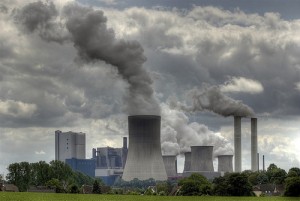China’s coal industry achieved production growth of 4% in the year 2012 (3.66 billion metric tons). This growth is a good sign for a recovering industry, but growth was still 4.7% less than the previous year, according to the China National Coal Association. Industrial indicators point to stock prices of coal as a main reason for slowed growth in the industry. Excess coal stock availability has contributed to decreasing stock prices. Declining stock prices are also related to China’s slowed economic growth as a whole in 2012, with overall growth measured at 7.8%, the lowest in over a decade. An additional contributor to slowed industrial growth is that the price of coal also decreased nearly 27% over the past year, to 630 yuan per ton. Experts predict that the coal industry will rebound this year due to increased demand from urbanization, but growth will still remain slow due to market uncertainties.
http://www.chinadaily.com.cn/business/2013-01/26/content_16176849.htm

I recently did a research presentation on energy resources, including both traditional energy and alternative energy. Regarding China’s energy problem as a country, according to Bloomberg,China’s traditional energy consumption increased nearly 7% last year,and the government recently published a 5-year alternative energy investment plan in a total of $290 billion. Many developed countries including the US has blamed China and India for a lack of consideration of the environment, but a recently study from Worldbank has shown that China’s energy use per capita is only 1/7 of the US energy use. Regarding this article, I think the reason for energy production to drop is not only from stock price, but also from the focus shift of the Chinese government from production to safety. In the recent years, there has been hundreds of accidents involved with illegal coal mining, which resulted in high number of death and bad government reputation. Also, another factor we need to consider is the use of alternative energy, which includes wind energy, solar energy, nuclear energy, and bio fuel. China has already invested a big chunk of money in wind and solar energy, and in some areas in China like Yunnan and Zhejiang, the idea of smart grid has been adopted. Thus, it might be a good thing from an environmental perspective to see a slowed production of coal.
Lots of issues here — by “stock price” do you mean inventories? I’m sure a few firms may be publicly traded, but lots aren’t and in any case the link between financial markets and output decisions is not tight.
As to energy demand, what is the income elasticity (using GDP as income)? Does electricity demand increase apace? — because that’s the underlying demand. Then as Christine notes there are alternative sources, in the US now coal projects are shutting down because natural gas is cheaper. The mix is different in China, but it’s still worth thinking about.